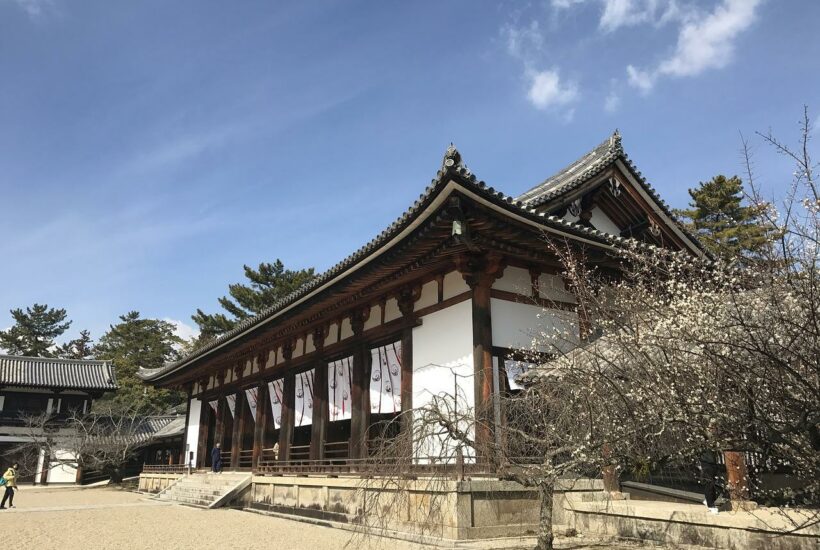Crowdfunding
Famous Temple in Nara Relies on Crowdfunding to Cover Maintenance Costs
Horyuji Temple is the first in Japan to be designated a World Heritage Site and will celebrate the 30th anniversary of the designation next year. However, it has been in very poor condition for several years. The main source of income for the temple is entrance fees from visitors, as there is no system to collect donations. However, the pandemic has caused the number of visitors to drop sharply.

Japan’s famous Horyuji Temple announced on June 15th that it will launch a crowdfunding campaign to raise $148,800 (20 million yen) to finance maintenance costs.
Update: The campaign has since reached its goal and actually exceeded it by 361 percent.
Meanwhile, such campaigns are common among temples in Japan when they need to make repairs or renovate, as it is difficult to collect the needed funds in any other way.
Born2Invest mobile application is bringing all the crowdfunding and business news from trusted sources to a single screen so you can stay on top of the market. The application is aggregating the most important and breaking news from relevant websites, the list is always revised and updated with new resources.
The pandemic has significantly reduced revenue for the Horyuji Temple
Shobo Ono, the temple’s chief administrator, said that while officials are concerned about how people will perceive the fundraiser, there is no choice but to conduct such a campaign.
“We want to prepare the temple to receive many visitors when the pandemic is under control,” Ono said. “Visits from believers will help us the most.
Horyuji Temple is the first in Japan to be designated a World Heritage Site and will celebrate the 30th anniversary of the designation next year. However, it has been in very poor condition for several years.
The main source of income for the temple is entrance fees from visitors, as there is no system to collect donations. However, the pandemic has caused the number of visitors to drop sharply.
In the fiscal year 2019, there were nearly 650,000 visitors. The following year, the number dropped to 200,000. In fiscal 2021, it rose again to about 350,000 but remained well below the 2019 numbers.
Cost-cutting measures are visible throughout the temple
In light of the chanting attendance numbers, measures have already been taken to save money. For example, a project to renovate major buildings has been postponed for several years and repairs to some statues and paintings have been canceled.
Maintenance of the grounds has also been affected. Before the pandemic, the temple spent about 20 million yen (about 141,650 euros) annually on maintenance, including lawn mowing and tree trimming. However, spending has been cut by 35 percent and the result is now more than evident.
There are about 150 buildings on the temple’s 187,000-square-meter site. Of these, 55 have been designated as national treasures by the Japanese government, including the Golden Hall, the Five-Story Pagoda, and the Hall of Dreams.
The temple also houses a collection of about 65,000 artifacts, including 2,500 items considered national treasures and important cultural properties.
Horyuji Temple is believed to have been founded around 607 by Emperor Suiko and Prince Shotoku.
__
(Featured image by nsmaibun via Pixabay)
DISCLAIMER: This article was written by a third party contributor and does not reflect the opinion of Born2Invest, its management, staff or its associates. Please review our disclaimer for more information.
This article may include forward-looking statements. These forward-looking statements generally are identified by the words “believe,” “project,” “estimate,” “become,” “plan,” “will,” and similar expressions. These forward-looking statements involve known and unknown risks as well as uncertainties, including those discussed in the following cautionary statements and elsewhere in this article and on this site. Although the Company may believe that its expectations are based on reasonable assumptions, the actual results that the Company may achieve may differ materially from any forward-looking statements, which reflect the opinions of the management of the Company only as of the date hereof. Additionally, please make sure to read these important disclosures.
First published in Sumikai, a third-party contributor translated and adapted the article from the original. In case of discrepancy, the original will prevail.
Although we made reasonable efforts to provide accurate translations, some parts may be incorrect. Born2Invest assumes no responsibility for errors, omissions or ambiguities in the translations provided on this website. Any person or entity relying on translated content does so at their own risk. Born2Invest is not responsible for losses caused by such reliance on the accuracy or reliability of translated information. If you wish to report an error or inaccuracy in the translation, we encourage you to contact us.

-

 Biotech4 days ago
Biotech4 days agoAdvancing Sarcoma Treatment: CAR-T Cell Therapy Offers Hope for Rare Tumors
-

 Impact Investing2 weeks ago
Impact Investing2 weeks agoShein Fined €40 Million in France for Misleading Discounts and False Environmental Claims
-

 Impact Investing1 day ago
Impact Investing1 day agoNidec Conversion Unveils 2025–2028 ESG Plan to Drive Sustainable Transformation
-

 Impact Investing1 week ago
Impact Investing1 week agoVernazza Autogru Secures €5M Green Loan to Drive Sustainable Innovation in Heavy Transport

























